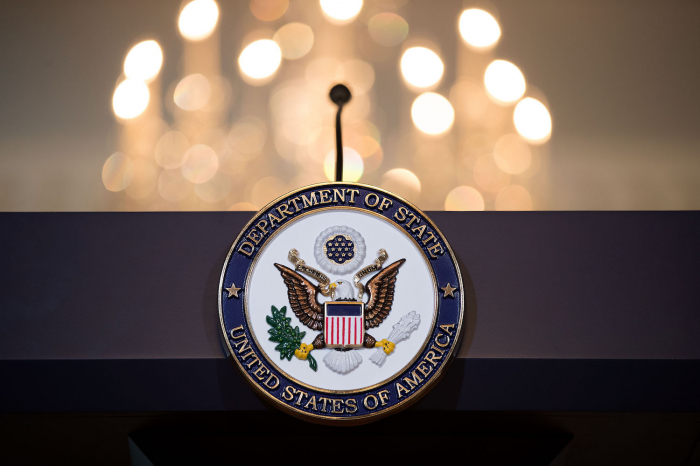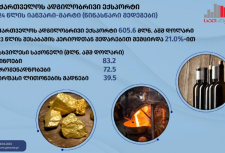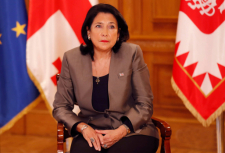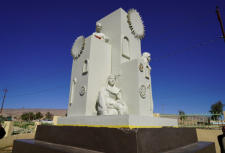Armenia 2021 human rights report

Executive summary
Important human rights concerns included credible reports of: torture by members of the security forces; harsh prison conditions; serious problems with judicial independence along with arbitrary or selective detentions; arbitrary or unlawful interference with privacy; serious conflict-related violations, including torture and other physical violence; serious restrictions on free speech and the media; human trafficking; crimes related to violence or threats of violence against civil society figures of a sexual minority; there is also the problem of the worst form of child labor.
The government has taken only limited steps to investigate and punish former and current government employees for alleged violations.
Human rights non-governmental organizations (NGOs) continued to express concerns about non-combat deaths in the army and the ineffectiveness of law enforcement agencies to conduct credible investigations of these deaths. According to reports from civil society organizations and victims' families, the practice of classifying many non-combat deaths as suicides at the beginning of the investigation made it less likely that violations would be identified and investigated. According to human rights activists, the biggest obstacle to the investigation of such deaths was the destruction or non-preservation of key material evidence, both by the military command (in cases of internal investigations) and by a specific investigative body working on the case.
According to human rights NGOs, the lack of transparency from the government in reports of military deaths, regardless of whether they were classified as combat or non-combat, led to public distrust.
Freedom of expression: People were generally free to criticize the Government without fear of reprisals. However, on July 29, the authorities charged Yazidi human rights activist Sashik Sultanyan under Article 226 of the Criminal Code "actions aimed at inciting national, racial or religious hatred or humiliation of national dignity", which was charged for expressing the opinion that the government did not do enough to protect the country's Yazidi minority from discrimination. If found guilty, he faces three to six years in prison. A group of NGOs warned that this case "will prevent public discussion of problems related to discrimination or the human rights of minorities ...". Human Rights Watch called this court case persecution, malicious and criminal charges false. On August 6, 2021, the Ombudsman of the Republic of Armenia stated that his office shares these concerns, noting that even if some of Sultanyan's criticism was inaccurate, he should not be criminally liable.
The government has accused Yazidi activist Sashik Sultanian of inciting hatred over comments he made expressing concerns about human rights in relation to the treatment of the Yazidi community. Individual Yazidis have periodically reported that discrimination is present, including in cases involving property disputes.
Birth registration: Children receive their citizenship from one or both parents. And the centralized system created a medical certificate of birth. A low percentage of births are registered in Yazidi and Kurdish communities, as they still practice home births.
Enrollment and attendance rates of children from ethnic minority groups, especially Yazidis, Kurds and Molokans, were significantly lower than average and dropout rates after the ninth grade were higher. Only a few schools throughout the country offered courses in Yazidi, Assyrian, Kurdish or Greek at the primary and secondary levels. These classes were not included in the formal academic performance of the curriculum and were not regulated. Yazidi parents continued to complain that the classes did not meet any standards and were largely ineffective.
According to a 2019 NGO report to the UN Committee on the Rights of the Child, most Yazidi children grew up speaking their native language and had practically no knowledge of the Armenian language when entering school. The lack of preschool facilities and educational services in most Yazidi villages created problems for Yazidi children who performed poorly in school and lagged behind their Armenian-speaking classmates.
It is reported that early marriages of girls are widespread in Yazidi communities.
Reports indicated that some girls dropped out of school either because of early marriage or to avoid abduction and forced marriage. The Government has not registered the number of early marriages. According to the Eurasia Partnership Foundation 2020 Report, in Armenia, the government did not have procedures for detecting forced marriages or a program to raise awareness or prevent early marriages.
According to the Government, it has launched awareness-raising programs.
The whole report is available here
state.gov/reports/2021-report-on-international-religious-freedom/armenia/
Tags: #yazidisinfo #newsyazidis #aboutyazidis #humanrights #yazidisofarmenia
Armenia 2021 human rights report

Executive summary
Important human rights concerns included credible reports of: torture by members of the security forces; harsh prison conditions; serious problems with judicial independence along with arbitrary or selective detentions; arbitrary or unlawful interference with privacy; serious conflict-related violations, including torture and other physical violence; serious restrictions on free speech and the media; human trafficking; crimes related to violence or threats of violence against civil society figures of a sexual minority; there is also the problem of the worst form of child labor.
The government has taken only limited steps to investigate and punish former and current government employees for alleged violations.
Human rights non-governmental organizations (NGOs) continued to express concerns about non-combat deaths in the army and the ineffectiveness of law enforcement agencies to conduct credible investigations of these deaths. According to reports from civil society organizations and victims' families, the practice of classifying many non-combat deaths as suicides at the beginning of the investigation made it less likely that violations would be identified and investigated. According to human rights activists, the biggest obstacle to the investigation of such deaths was the destruction or non-preservation of key material evidence, both by the military command (in cases of internal investigations) and by a specific investigative body working on the case.
According to human rights NGOs, the lack of transparency from the government in reports of military deaths, regardless of whether they were classified as combat or non-combat, led to public distrust.
Freedom of expression: People were generally free to criticize the Government without fear of reprisals. However, on July 29, the authorities charged Yazidi human rights activist Sashik Sultanyan under Article 226 of the Criminal Code "actions aimed at inciting national, racial or religious hatred or humiliation of national dignity", which was charged for expressing the opinion that the government did not do enough to protect the country's Yazidi minority from discrimination. If found guilty, he faces three to six years in prison. A group of NGOs warned that this case "will prevent public discussion of problems related to discrimination or the human rights of minorities ...". Human Rights Watch called this court case persecution, malicious and criminal charges false. On August 6, 2021, the Ombudsman of the Republic of Armenia stated that his office shares these concerns, noting that even if some of Sultanyan's criticism was inaccurate, he should not be criminally liable.
The government has accused Yazidi activist Sashik Sultanian of inciting hatred over comments he made expressing concerns about human rights in relation to the treatment of the Yazidi community. Individual Yazidis have periodically reported that discrimination is present, including in cases involving property disputes.
Birth registration: Children receive their citizenship from one or both parents. And the centralized system created a medical certificate of birth. A low percentage of births are registered in Yazidi and Kurdish communities, as they still practice home births.
Enrollment and attendance rates of children from ethnic minority groups, especially Yazidis, Kurds and Molokans, were significantly lower than average and dropout rates after the ninth grade were higher. Only a few schools throughout the country offered courses in Yazidi, Assyrian, Kurdish or Greek at the primary and secondary levels. These classes were not included in the formal academic performance of the curriculum and were not regulated. Yazidi parents continued to complain that the classes did not meet any standards and were largely ineffective.
According to a 2019 NGO report to the UN Committee on the Rights of the Child, most Yazidi children grew up speaking their native language and had practically no knowledge of the Armenian language when entering school. The lack of preschool facilities and educational services in most Yazidi villages created problems for Yazidi children who performed poorly in school and lagged behind their Armenian-speaking classmates.
It is reported that early marriages of girls are widespread in Yazidi communities.
Reports indicated that some girls dropped out of school either because of early marriage or to avoid abduction and forced marriage. The Government has not registered the number of early marriages. According to the Eurasia Partnership Foundation 2020 Report, in Armenia, the government did not have procedures for detecting forced marriages or a program to raise awareness or prevent early marriages.
According to the Government, it has launched awareness-raising programs.
The whole report is available here
state.gov/reports/2021-report-on-international-religious-freedom/armenia/
Tags: #yazidisinfo #newsyazidis #aboutyazidis #humanrights #yazidisofarmenia

























